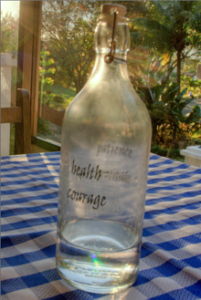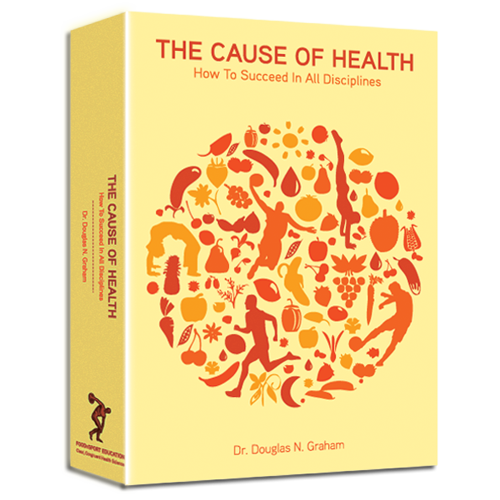
The more body fat you carry, the more dehydrated you become.
We see a lot of hype about staying hydrated these days. The current generic recommendation for men to drink at least twelve glasses and for women to drink at least eight glasses of water daily is essentially an open admission from the medical establishment that the standard American diet is at least that much deficient in this vital nutrient. Yet this recommendation is a clear case of treating the symptoms without ever actually correcting the problem. Hygienic philosophy dictates that we are always better to correct the problem rather than simply treating the symptoms.
tiredness, often crippling tiredness.
An average adult is typically about 60% water, by weight, but athletes or people with larger than average muscles can be up to 70% water. Our water balance is quite finely tuned. We tend not to experience the conscious sensation of thirst until we approach a three percent loss in body water, but both mental and physical performance is compromised by the time we’ve lost even one percent of our water weight.
One of the main symptoms of dehydration is tiredness, often crippling tiredness. Such tiredness makes it much less likely that a dehydrated person is going to be physically active, especially when compared to a well-hydrated person. Chronic dehydration is often listed as one of the major causes of chronic fatigue, and is associated with a wide range of many other degenerative conditions.
Muscles carry almost 75% water by weight, whereas fat is usually only 5% water by weight. This huge discrepancy makes for some interesting numbers that can seriously affect our health, when we consider the relationship of body fat to body water. Essentially for every 10% increase in body fat there is an accompanying 7% decrease in body water. Women typically carry at least ten percent more body fat than men, and have about 7% less body water as a result.
Victoria Everett (center)and friends with carob-date bars
for Wonka theme at Health & Fitness Week
Increases in body fat make physical exertions more challenging. While we rarely see obese people out exercising, and might attribute that fact to the possibility that they would feel self-conscious, the reality is that when you carry around a few hundred extra pounds, you simply don’t have the energy to exercise. Extremely heavy people barely have the energy to walk to the car, and often enough consider walking from one living room chair to another their “exercise” for the day.
By the time we combine the sheer muscular effort caused by obesity with the resulting dehydration lethargy, it should become easy to see that carrying excess body fat is to be avoided. The solution: The 80/10/10 Diet. The low-caloric density of fruits and vegetables combined with their generous water and nutrient content provides everything we need from our food in order to manage weight, hydration, and general health.
Articles and Videos:
- 80/10/10 Weight Loss / Fat Loss YouTube Video Playlist
- The Low-Fat Diet in a Nutshell by Dr. Graham
- Human Energy by Dr. Graham
- Medical and Nonmedical Models of Health by Dr. Graham
- Half-Fast Metabolism by Dr. Graham
- 32 Elements of Health: How Round is Your Wheel? by Luke Sartor
- The Best I Have To Offer by Dr. Graham
- How Diabetes Develops In a Person Over Time: And how it can be reversed in an even shorter time. by Dr. Graham
- Raw Vegan Fudge Heart Candy Recipe for Valentine’s Day by Katy Craine
- Interview of Diane Ligon
- “If You Want To Stay Lean, Stay Away From Protein”, says Super Strong Vegan Swede
Retreats:
Practical Skills To Thrive |
Banana Island Escape |
Memberships:
Solidify Your Foundation |
Lifestyle To The Next Level |
Self-Study Materials:
The 80/10/10 Get Started Combo |
The Cause Of Health Dr. Graham’s Lectures (10-CD Set) |
Raw Health Series 2: Acquiring Vibrant Health & Keeping It |








